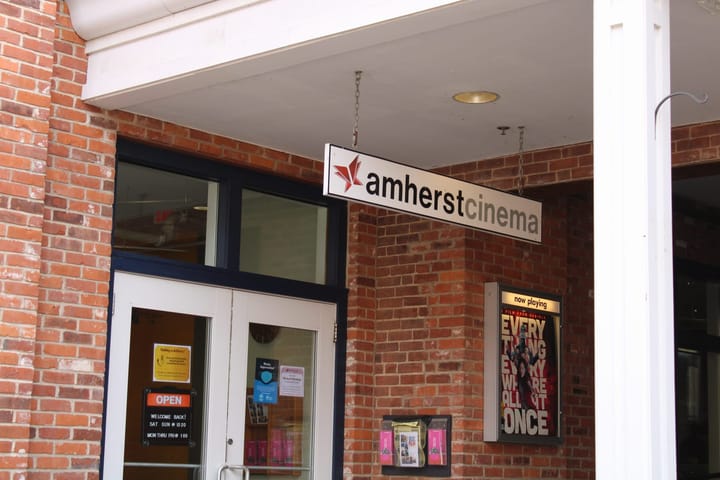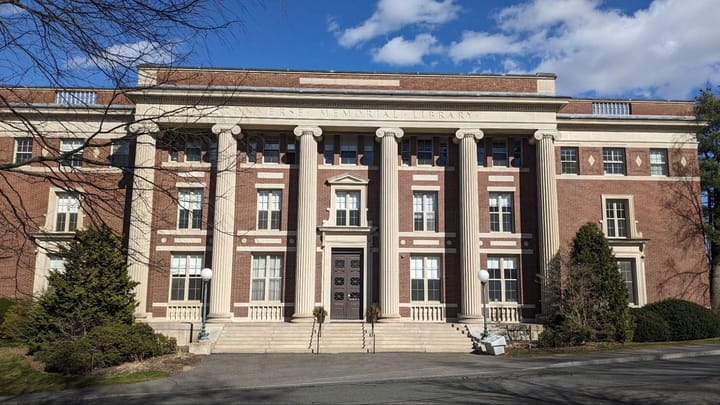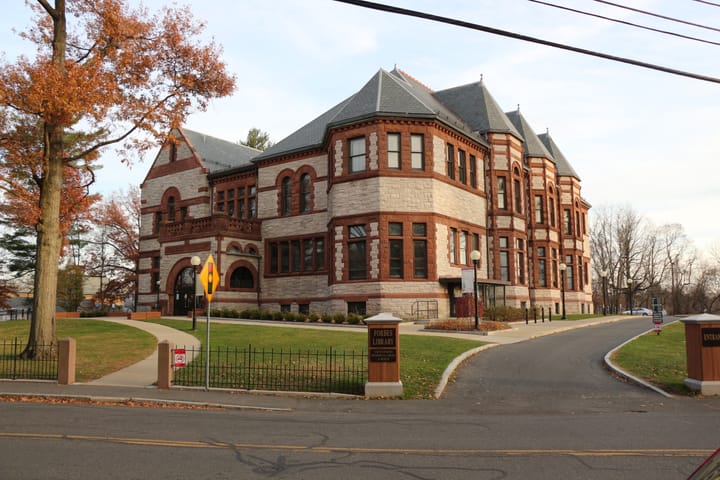From the Red Room: April 25 AAS Meeting Updates
On Monday, April 25, the Association of Amherst Students (AAS) met for the 11th time this semester. The meeting’s topics included a new Budgetary Committee (BC) policy, a motion to delay the recent bylaw to compensate AAS officials, and the recently released campus safety report.
On Monday, April 25, the Association of Amherst Students (AAS) met for the 11th time this semester. Held in the Red Room, the meeting’s topics included a public comment suggesting a new Budgetary Committee (BC) policy, a motion to delay the recent bylaw to compensate AAS officials, and the recently released campus safety report.
The AAS heard a public comment from former Treasurer Jae Yun Ham ’22, who suggested that the BC establish a new policy to “not fund events where individual students or student-owned entities stand to gain a profit.” However, the policy would “not apply to compensation for student labor,” as in paying students for service-oriented work, like bands or DJs. The policy instead targets buying products from students, Ham explained.
According to Ham, the proposed policy is a response to a pair of recent events during which BC funding was used to purchase products from a company owned by a student, although the BC was not informed of this intent prior to recommending the funding.
Some senators questioned whether a substantive distinction could be made between paying students for a service versus paying a student company for a product. Others argued that it was better to pay a student company than a large corporation.
Treasurer Dania Hallak ’24 pointed out that the BC has little recourse in cases where the AAS approves funding and it later becomes apparent that a student misrepresented their request, although the BC could prevent the student organization from receiving further funding. Hallak said she views the proposed policy as a necessary preventative measure given the limitations on the BC’s ability to police abuses of AAS funding.
While a BC policy change only requires majority approval of the BC, an informal poll of the entire Senate revealed no clear consensus on the matter.
After approving the previous week’s minutes, the Senate then reviewed the BC discretionary funding recommendations and Senate project funding requests. Hallak presented the BC recommendations, which amounted to $9,421.27. Then, Gavi Forman ’22 requested an additional $210 for her bikeshare Senate project.
Mia Griffin ’24 added a last-minute request for $25 to offer as a gift-card prize for the most creative promposal, as selected by the senators behind the prom Senate project, in addition to the prizes already offered to those whose promposals earned the most Instagram likes. A motion to approve all of these funding requests was introduced and passed, with the senators behind the prom abstaining.
Officers then delivered their weekly reports. Vice-President Jaden Richards ’25 announced that the first session of AAS office hours in Valentine Dining Hall on Friday, April 22, had yielded feedback from around 100 people, which he would distribute to the appropriate committees. He also encouraged senators to participate in the office hours, though he noted that it was not mandatory. Hannah Kim ’25 suggested that participation in office hours be made mandatory for senators. Richards responded that a senator could propose a bylaw to require participation.
Secretary Jeffrey Ma ’24 reminded senators that Speech Night for Senate candidates is April 27 at 8 p.m., adding that candidates do not need to submit a candidate statement in order to run. As long as they attend Speech Night and let him know that they wish to run, their name will appear on the ballot.
Richards also described a meeting that he and President Sirus Wheaton ’23 had with Dean of Students and Chief Student Affairs Officer Liz Agosto. In the meeting, the pair brought up the possibility of a “Mammoth Day” this semester, which would provide students with a day off from classes. Agosto was reportedly receptive to the possibility.
The meeting also involved discussion of the recently passed bylaw establishing salaries for AAS officials. According to Richards, Agosto said that there were a number of obstacles to the implementation of the bylaw that would require substantial work to resolve.
Given these issues, Cole Graber-Mitchell ’22, who wrote the bylaw, proposed a motion to delay it from taking effect until the 2022-2023 academic year. Wheaton supported Graber-Mitchell’s call to delay the bylaw’s effects, noting that it will take substantial group work to enact the bylaw. The motion passed with overwhelming support.
Ma said he would email all Senate candidates to let them know that the bylaw’s effects had been delayed. Richards solicited and recorded the names of senators interested in working on the issue.
Discussion then shifted to the possibility of the AAS compensating members of student organizations. Richards suggested that doing so would be difficult given the issues surrounding the AAS paying AAS officials.
Adejumo maintained that members of Amherst College Emergency Medical Services (ACEMS) should be paid based on the value the organization provides to the college community. Hallak responded that using AAS funds to pay ACEMS members would likely be impossible, due to its exclusivity. But she noted that the AAS could urge the college to compensate ACEMS members.
Kya Rincon ’22 suggested that the Senate look into how other colleges deal with paying wages to student organizations.
The Senate then discussed the report recently released by the Campus Safety Advisory Committee, which addressed policing on campus. Sofia Guerra ’22, who was on the committee, suggested that a town hall be held with either Chief of Police John Carter or Chief Strategy Officer Kate Salop.
Some senators lamented the inaccessibility of the trustees, who were responsible for evaluating and deciding on possible actions based on the report.
The next AAS meeting will be held on Monday, May 2.





Comments ()